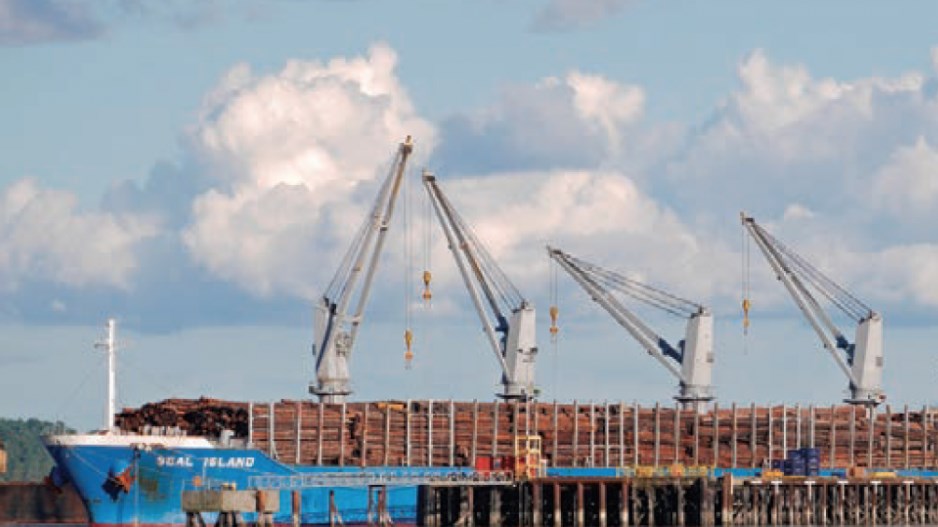The ability for B.C.’s private forest-land owners to export logs is crucial for the maintaining of supplies to domestic mill production - which is why it is vital to the entire sector for Ottawa to temporarily allow more log exports, officials with Mosaic Forest Management said.
The topic re-emerged on the forefront of the national policy debate surrounding the pricing model for logs produced in B.C. after a coalition of unions, environmental groups and mill operators sent a letter to Ottawa earlier this month asking the feds to reject Mosaic’s proposal to temporarily lift log-export limits.
But Domenico Iannidinardo, vice president of forest & logistics and chief forester at Mosaic, said such opposition is ill-thought-out because exported logs - sold at international log pricing typically 25-30% higher than domestic pricing - are a vital part of what makes the economic model work overall.
Under the current domestic pricing policy, any logs produced in B.C. slated for export must first go into a pool where domestic mills get the right of first refusal. In this process, domestic mills get to submit a price they wish to pay for the logs, and an Ottawa-appointed committee decides whether the prices are fair. Any log that is left after satisfying domestic demand can then be exported at the higher international pricing.
“Mosaic is very much appreciative and happy with the concept of domestic mills getting the right of first refusal,” Iannidinardo said. “The issue is, for that pricing process - which happens long after a tree is cut and brought to market - prices are typically 25-30% below international prices, and therefore in many cases well below our cost of production for those logs.”
In late 2019, when the global log market became soft, many licencees of B.C. public forest land actually ceased production, leaving Mosaic as the last company on the West Coast still producing logs. That means that domestic mills - who normally also had public logs they can access - intercepted 100% of Mosaic’s log production at the lower price point, a process that requires being subsidized by at least some international-pricing sales to maintain, Iannidinardo added.
“It means our overall revenue was negative,” he noted of the 2019 situation. “… The most value-added part of forestry is actually growing the tree, and converting it into other things afterwards is an additional, but much smaller, increase in the initial value of growing the tree. And that’s what our business is.”
Ottawa has not responded to either Mosaic’s request for a temporary change in rules (so that some logs can be exported) or to the counter-letter by the coalition including Unifor, San Group Inc. and the Wilderness Committee. The opposition letter argues that if Mosaic’s logs cannot be used for domestic production in B.C., then the trees should not be cut in the first place.
Iannidinardo noted again, however, that domestic pricing is set after the log is cut. He added the company is working with domestic mills on achieving long-term supply agreements that guarantee for “cost-certainty” for everyone involved.
Until that happens, however, the only solution is opening some log supplies for export.
“We can subsidize our domestic mills if we have a portion of our market sold at international pricing, and the only way right now we can get access to that pricing is through export customers,” Iannidinardo said. “… If domestic prices get closer to international prices, we will see more reliable levels of harvest in British Columbia. And that would be good for domestic mills and all the loggers, foresters out in the woods.”
Mosaic recently restarted operations on Vancouver Island, although how sustainable the restart is, officials said, will depend on a solution to the domestic pricing issue. The company employs 2,000 contractors during production and spends $25 million a month on supplies and services, as well as supplying returns for thousands of pensioners relying on Canadian public sector pension funds.




